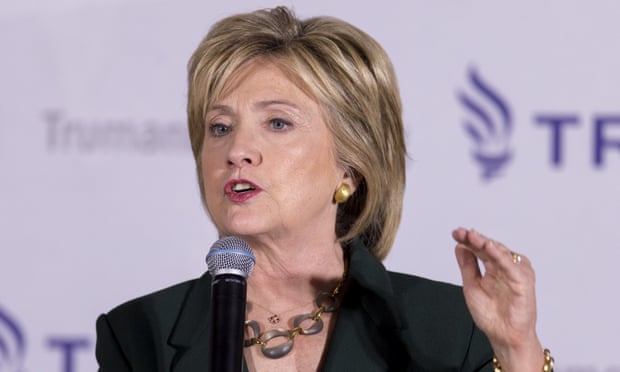Hillary Clinton on Thursday unveiled a $30bn plan to help America’s coal communities adjust to a climate agenda increasingly driven by renewable energy sources.
After setting ambitious goals to combat climate change in recent months, the Democratic presidential frontrunner’s latest proposals detail how a Clinton administration would seek to alleviate the impact on mining communities of a transition away from coal-fired power plants. Her proposals include new federal investments in public health and education, job training and infrastructure, targeted toward coal-dependent communities that have seen dramatic job losses at the expense of growth in wind, solar and natural gas industries.
After setting ambitious goals to combat climate change in recent months, the Democratic presidential frontrunner’s latest proposals detail how a Clinton administration would seek to alleviate the impact on mining communities of a transition away from coal-fired power plants. Her proposals include new federal investments in public health and education, job training and infrastructure, targeted toward coal-dependent communities that have seen dramatic job losses at the expense of growth in wind, solar and natural gas industries.
Republicans immediately hit back, framing a climate change versus jobs argument which will run all the way to the 2016 election. The Republican National Committee wasted no time dubbing Clinton “Public Enemy No 1 for coal miners and their communities”, given her support for the president’s agenda.
“If Hillary Clinton were truly on the side of coal country, she would stand up to extreme anti-energy environmentalists that run the Democrat party instead of embracing their agenda that is killing jobs and driving up costs,” Michael Short, an RNC spokesman, said in a statement.
With the UN climate change summit looming in Paris later this month, “Clinton is committed to meeting the climate change challenge as president and making the United States a clean energy superpower”, a release from her campaign said.
At the same time, she gave a personal commitment not to leave coal communities behind.
“As president, I will make sure our country honors our commitments to coal miners and their families, who gave their careers, their health, and in some cases their lives to powering America’s economy,” Clinton said in a statement. “And I will invest for the future, by increasing federal investment to revitalize coal communities and partnering with the private sector to promote locally driven business development and job creation.”
The plan counters one of the main arguments employed by Republicans against the Clean Power Plan, which is the cornerstone of Barack Obama’s climate change agenda. In pushing back on Obama’s new rules to cut carbon pollution, Republicans often dub the president’s policy as a “war on coal”.
The Republican presidential candidates are uniformly opposed to the Obama administration’s climate rules and have vowed to repeal his regulations on coal-fired power plans.
In this week’s Republican presidential debate, US senator Rand Paul said the Clean Power Plan had “devastated” his home state of Kentucky. Coal production in eastern Kentucky has fallen sharply in recent years and has prompted the shuttering of mines and thousands of job losses in the region – although that trend began well before Obama announced his regulations on coal-fired power plans.
To mitigate the decline, Clinton’s plan would look to repurpose mine lands and power plant sites in coal-heavy areas for new investments in agriculture, manufacturing and forestry. Her campaign cited the example of a recently closed coal plant in Alabama that will soon be the site of a data center by Google.
Clinton’s plan would also expand broadband access in coal communities that fall far behind the rest of the country in terms of access to the internet. And it would invest in the building of new bridges, roads, airports and water systems, including the completion of the Appalachian Development Highway System – a project that was established to boost economic development in previously isolated areas.
In 2008, Clinton ran a campaign that positioned her as more of a blue-collar, pro-coal Democrat. In her second bid for president, she has adopted a more progressive stance on environmental issues that includes her recently statedopposition against the controversial Keystone XL pipeline.
But throughout her campaign, Clinton has maintained a commitment to coal miners and ensured their families and communities aren’t left behind.
Her latest plan includes a vow to advocate on behalf of sick miners who have been wrongfully denied coverage under the federal black lung benefit program, and emphasizes the need to ensure that retired coal workers receive pension benefits from mining companies that in some cases have sought to abstain from those obligations after declaring bankruptcy.
A string of coal companies have been pushed to the brink of insolvency over the past few years amid a steep decline in demand and coal prices electric grid shifts to cleaner energy sources. The historic shift in the electric power sector toward natural gas, coupled with stricter rules against pollution, prompted at least four major coal companies to seek bankruptcy protection in the past 15 months alone.


No comments:
Post a Comment